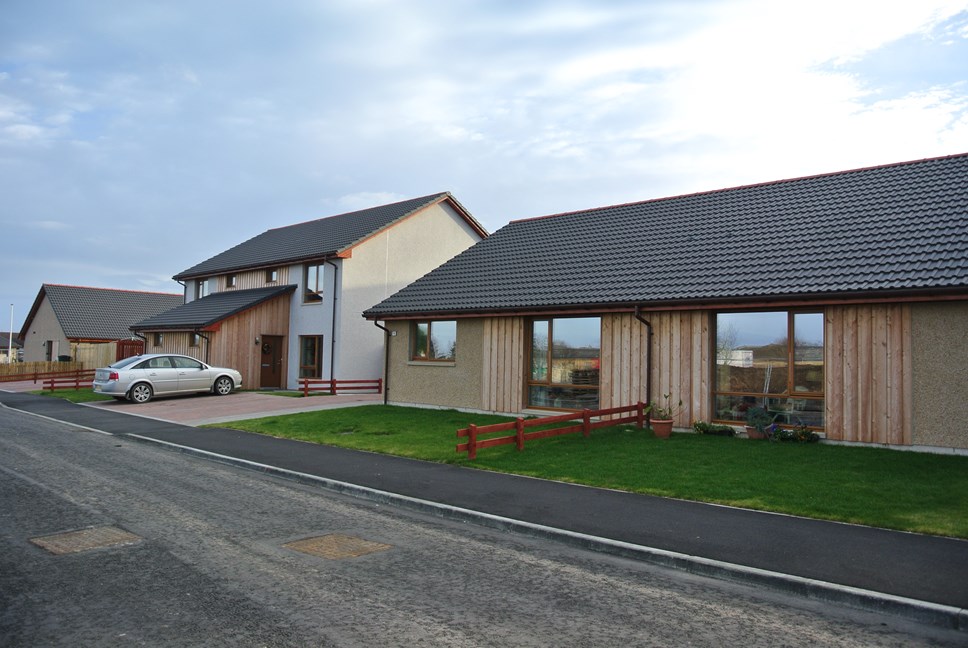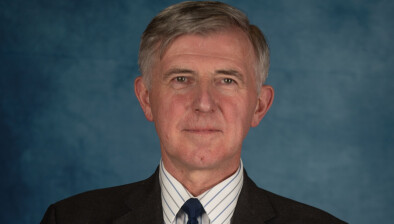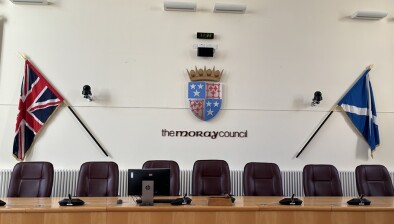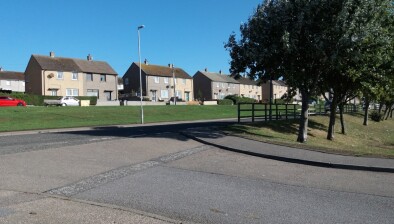£22.8m housing budget set in Moray

Moray Council has approved a £22.8 million budget for housing services in 2023/24.
A 3.5% increase in rent for local authority tenants has also been confirmed, following consultation with tenants.
The increase sees Moray Council remain as the lowest charging local authority landlord in Scotland.
Tenants were given the option of a 3.5% increase or 5%, both of which are well below the rate of inflation, with just over 80% of tenants who responded opting for the 3.5% increase.
The two-yearly garage rents are to increase by 8.5%; alongside grass cutting charges increasing by 3.5%; while the sheltered housing budget increases to £0.063m; and repairs and maintenance spending increases to £10.696m to account for increased labour and materials costs.
Elected members have also allocated almost £56m to new builds over the coming three years.
Continuation of work to ensure electrical standards are met and a £7.435m programme of energy efficiency and insulation work are included.
Council leader, Councillor Kathleen Robertson, said of the changes: “Given the housing budget is effectively separate from the wider council budget we must ensure a balanced Housing Revenue Account. The level of income generated directly influences what we can fund when it comes to new builds, repairs and support to tenants.
“A 3.5% increase in rent is significant, particularly in light of the increased cost of living in all areas of life right now. However, we must also caution that, as this is the second year in a row the minimum increase has been chosen, a higher increase in future years is inevitable.
“As with all areas of service delivery costs are going up, temporary accommodation is an example of where we’re seeing that most keenly, and I thank the housing team for all their efforts to balance the budget while providing a professional and valued service.”
Chair of the Housing and Community Safety Committee, Councillor Amber Dunbar, added: “Despite increases to costs of delivery we’re mindful of the need to maintain affordability within our housing offer. To have a balanced budget while fulfilling our statutory requirements around energy efficiency, smoke alarm installations, and more is a considerable achievement and I add my thanks to the team for managing this.”
Moray Council has also committed to £59.1m capital investment alongside its £260m revenue budget for the 2023/24 financial year.
The budget, which addresses the £21.6m funding gap facing the local authority, sees a 5% increase in council tax, which is expected to generate £49.6m.
Alongside the £193.4m grant from the Scottish Government, which accounts for around 80% of the total budget, Moray Council is looking to use £14.77m in Covid reserves, and £1.6m from the transformation allocation to balance the books this year.
Around £2.3m of savings have already been approved from the disposal of surplus property, changes to temporary job roles, retaining the three-weekly recycling collections, restructuring and more. A further £1.67m of savings has been identified for the coming year including homelessness and out-of-hours service reviews, housing energy efficiency strategy; and existing vacancies.
However, elected members have noted the requirement for a further £18.7m of savings in 2024/25. How that is achieved will be the subject of forthcoming community engagement sessions to allow Moray residents to influence the council they want to see.
Full Council also approved setting aside £11.2m for the Learning Estate with Forres Academy and Buckie High School awaiting Scottish Government funding announcements; £810,000 is to be spent on bridges; and £26.7m will contribute to economic development in Moray as well as continuing to hold £4m for progression of the Moray Growth Deal.
Following this year’s investment of £139,000 for libraries the ongoing leisure estate review will be completed. The roads network will benefit from £4.35m of spend on resurfacing, reconstructions, surface dressing, and drainage with an additional £300,000 for pothole repairs following the poor winter weather.
Open Spaces will continue to work with communities on the rolling programme to refurbish two play areas a year through participatory budgeting and sees £135,000 invested in such activity. Existing astro-turf pitches are allocated £300,000 for rejuvenation, while the Forres pitch is on hold until the future of the Academy is established.
Waste upgrades this year will see £350,000 works at Dallachy Landfill site at Spey Bay; £225,000 for Gollachy Recycling Centre in Buckie; £100,000 for new domestic and trade waste bins; £20,000 for replacement recycling centre containers; and £18,000 on more gull-proof bins.
Amendments to the budget put forward on the day, and accepted, include: a £20,000 donation to Moray Foodbank; £50,000 for road safety support; £15,000 for members in each ward to spend on minor works; £5,000 support for the Turkish/Syrian earthquake relief; reinstatement of the Employee Assistance Programme; and an additional £0.5m for an Education Investment Fund to continue tackling raising attainment post-pandemic.
Following the setting of the budget, Moray Council Leader, Cllr Kathleen Robertson, said: “We’ve known for some time that balancing the budget this year would be impacted, not only on our own financial situation, but external and global factors such as the increase in construction costs, rate of inflation and more.
“The challenge has been to ensure Moray still has the level of investment needed to continue our recovery from the pandemic and develop our economy to meet our aspirations, while being financially prudent enough to operate within our means.
“Across our workforce, at all levels, we see staff continuing to deliver high levels of service and I thank them for their efforts in the face of budget pressures. Their commitment to public service is valued by the community and they will be supported as we look to the year ahead.
“There is no magic wand to help local authorities deal with the concerns we have over budgets. Which is why it’s ever more important that we work together as a council, and a community, to identify sustainable practices to shape the future of our region. I look forward to the community engagement exercises planned for the coming months, which will give residents their voice in that future.”







